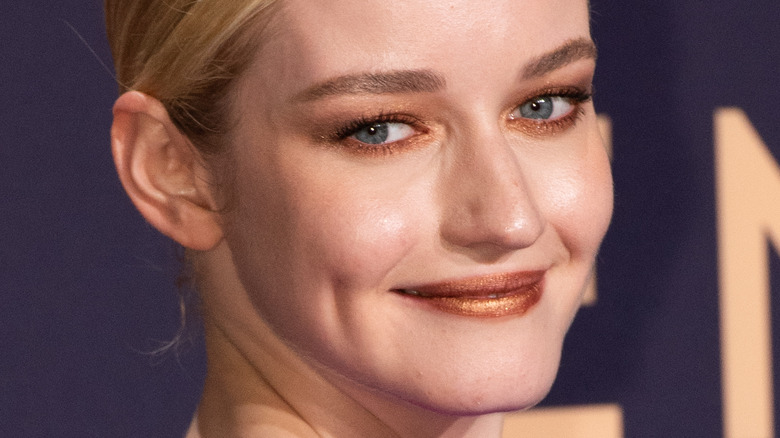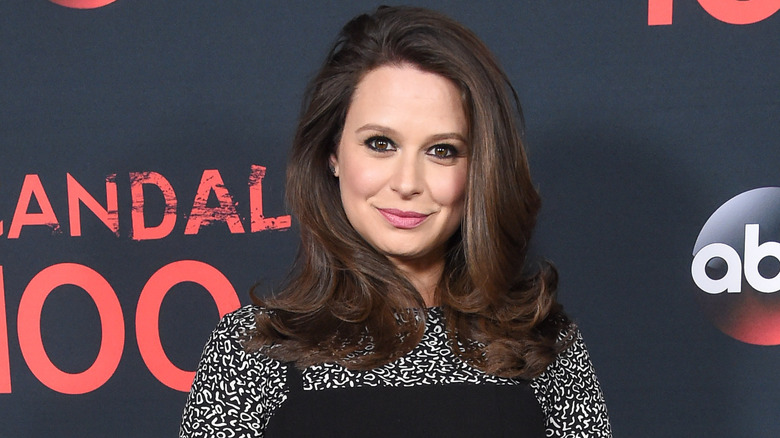The Real Reason Netflix Got Slapped With An Eye-Popping Lawsuit Over Inventing Anna
Biopics and similar dramatized, historically adjacent media are very popular as of late. In the last few years, Freddie Mercury, Elton John, and Elvis Presley have all received movies about their respective lives (weirdly, only one of them was a true musical), and Marilyn Monroe will see her own story revived soon. In a similar manner, Hulu retold the life of Diana Spencer and Netflix retold the life of Anna Sorokin. However, it's this last one that has caught everyone's attention, and not because "Inventing Anna" is some incredible feat of story telling but rather because "Inventing Anna" apparently did some inventing of its own.
Broadly, Netflix's docudrama series follows the story of Anna Sorokin (Julia Garner), aka Anna Delvey, who conned a great deal of money out of rich people by pretending to be an heiress and the inevitable fallout from those actions. The issue is not with Sorokin herself, who worked on the show (that she refuses to watch). The alleged invention comes in the form of fabricating an antagonist. Let's take a look.
Netflix reimagined a real person as a villain
According to the Hollywood Reporter, the Netflix docudrama series has come under fire for playing fast and loose with events that occurred to people who are still alive. Specifically, it seems that Netflix tinkered with the actions and intents of one Rachel Williams (Katie Lowes in the series). Since Williams is still around to tell her side of the story, she's filed a suit against the streaming site for framing her as a villain within the context of "Inventing Anna." The original complaint reads, "Netflix made a deliberate decision for dramatic purposes to show Williams doing or saying things in the Series which portray her as a greedy, snobbish, disloyal, dishonest, cowardly, manipulative and opportunistic person."
The basis for this claim stems from two individual points. Firstly, showrunner Shonda Rhimes has gone on record to state that certain aspects of "Inventing Anna" were entirely fictionalized as they made the events therein more engaging. While Rhimes has yet to elaborate on this, the door is open for legal speculation, and Williams brought a detailed list of actions that her fictional counterpart committed that do not align with her reality. Secondly, Alexander Rufus-Isaacs — Williams's representation — has publicly suggested that Netflix is intentionally damaging Williams's credibility because she sold the rights to her Vanity Fair article, along with her book "My Friend Anna" (which had yet to be written at the time of the sale) to HBO, Netflix's competitor.
The case is ongoing and, as of this writing, neither Netflix nor Rhimes has released a statement in their defense. For her part, Williams has accrued and collated outlets which have taken her side on her website, Rachel DeLoache Williams, so any who are interested can follow along.

